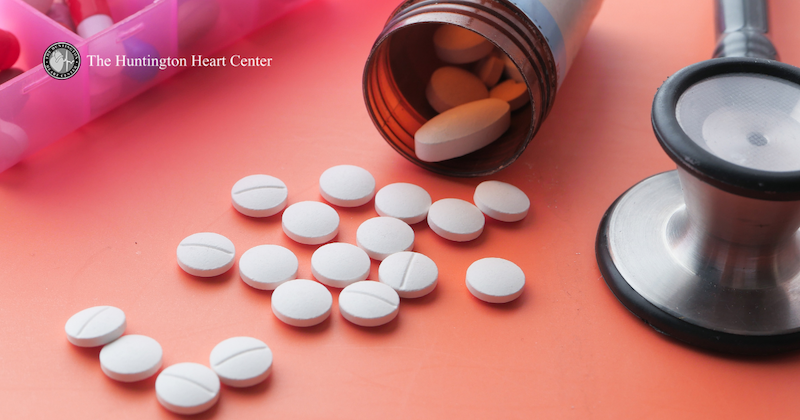Category Archives: Heart Attack
Understanding Chest Pain & Knowing When to Worry

Chest pain is one of the scariest concerns we experience in our lives. Human nature leads us to believe that the worst may be happening – a heart attack. Fortunately, most chest pain issues, also known as angina, are far less severe, but this does not mean that chest pain should be ignored. This article will cover the common causes of chest pain and what patients should do if they feel it. Of course, if the chest pain is unusual, severe, or persistent, this may be a medical emergency, and you should call 911 or go to your nearest emergency room without delay.
Starting an Exercise Program After a Heart Attack

A heart attack is one of the most frightening moments in a person’s life. It can remind us of our mortality and often paralyzes us into believing that we should reduce our activity to preserve the heart muscle. But let’s explore a heart attack and why not exercising may cause even more significant problems.
A heart attack occurs when oxygen-rich blood to the heart is limited by the partial or complete occlusion of the supplying artery. This happens due to plaque buildup within that artery, known as atherosclerosis. Like any other muscle in the body, when the blood flow is interrupted, the tissue supplied by that blood vessel begins to die. The longer the heart remains without its blood supply, the greater the damage. Fortunately, due to better public awareness of heart attacks and faster interventions, the number of people surviving a heart attack has increased over the years.
Concerning Study Results Linking Cannabis Use to Increased Risk of Heart Attack
A recent retrospective study of 30,000 young adults between the ages of 18 and 44 has raised alarm bells about the use of cannabis products and an increased risk of heart attack and even stroke. Cannabis products are those that contain the psychoactive component of marijuana – THC. As marijuana has been legalized around the United States, its uses have proliferated. Further, new formulations and strains of these products have made them exponentially more potent than the products that were common just a few decades ago. This has resulted in several potential concerns.
When You May Need Early Heart Health Screening
When you’re young and healthy, the last thing on your mind is keeping up with heart screenings. It may seem like a distant problem that you will not have to deal with for many years to come. But the truth is that the more proactive you are about your heart health, the better chance you have of detecting a condition early, opening up widerpossibilities for prevention and treatment.
Just as women perform self-breast exams, men get prostate checks and we are all recommended to get colonoscopies at certain ages, regular heart screenings are imperative for your health and well-being.
NSAIDs and Risks for Your Heart
NSAIDs, used to treat pain and inflammation, can increase your risk for both stroke and heart attack. The FDA has warned about this increased risk since the early 2000s. However, taking a non-steroidal anti-inflammatory medication to treat a specific ailment for a short period of time should not create an extreme risk. Extended use can be dangerous, so we recommended that you take the smallest amount necessary for the shortest period of time possible.
Setting the Record Straight About Cholesterol
In most people’s eyes, cholesterol is a bad word. It is the sticky substance that lines your arteries, causes ischemic heart disease and ultimately a full-on heart attack. But, in actuality, cholesterol is an umbrella term alternately describing a component of both the bad and not so bad foods we eat as well as the results of a common blood test.
How Diabetes Affects Heart Attack and Stroke Risk
Diabetes is an insidious disease. Currently over 30 million Americans suffer from diabetes and 84 million are pre-diabetic. Many don’t even know they have the condition or that they are at heightened risk. That’s why diabetes is known as the silent killer – many of its symptoms are not readily apparent until serious follow-on disorders have occurred.
Most people associate diabetes with insulin injections, eye problems and even amputations. But they may be less familiar with its effects on the heart, including increasing the risk of cardiovascular disease and heightening the risk of stroke.
Heart Attack Symptoms in Women
Heart attacks also known as myocardial infarction occurs when blood flow to the heart from a major artery is blocked. This is usually due to the buildup of plaque on the arterial walls. This buildup narrows the arteries, allowing less blood to pass through and back to the heart. Eventually the artery can shut completely, or a piece of plaque can break off and block blood flow.
The Risks and Warning Signs of a Heart Attack
We all know that heart attacks are serious. We are often reminded about them from concerned family members when we’re stressed or from the myriad of public service announcements on TV, the radio and on billboards. While we’ve been trained to worry about a heart attack, we still lag in the risks and warning signs that we should be aware of to avoid one in the first place or get treatment at the earliest possible time.










